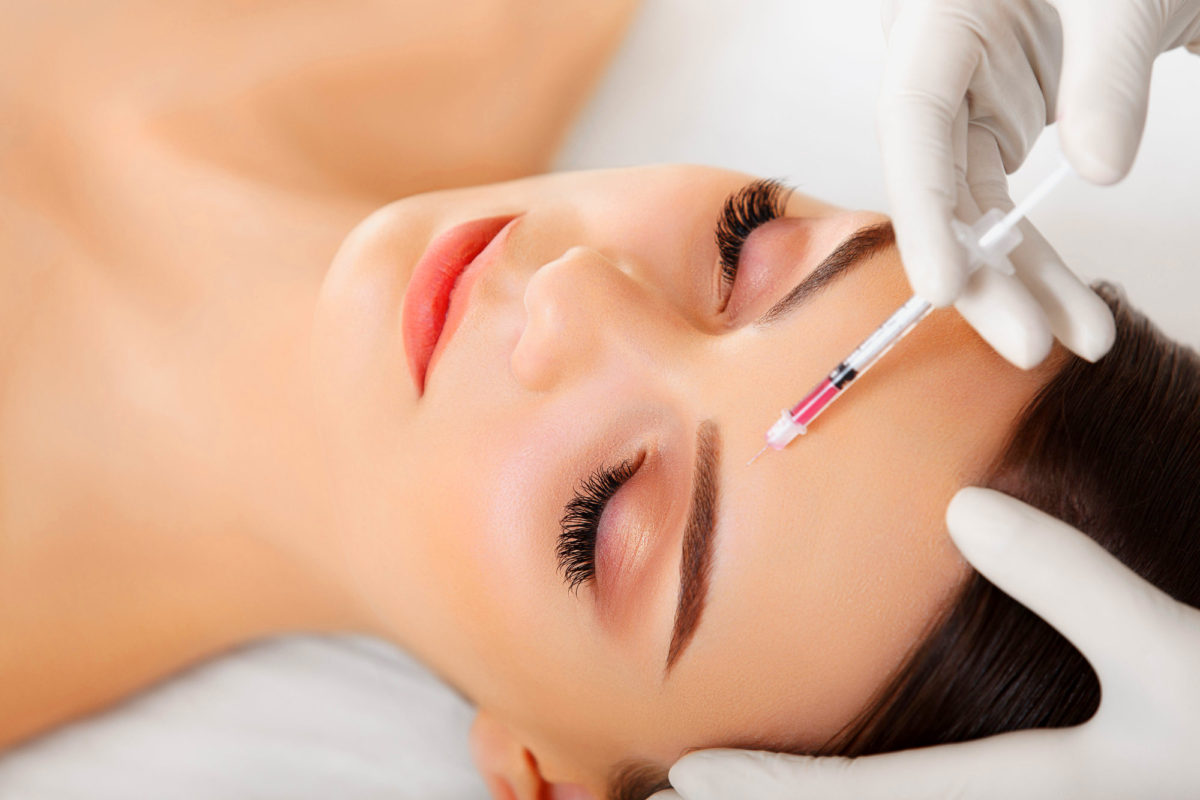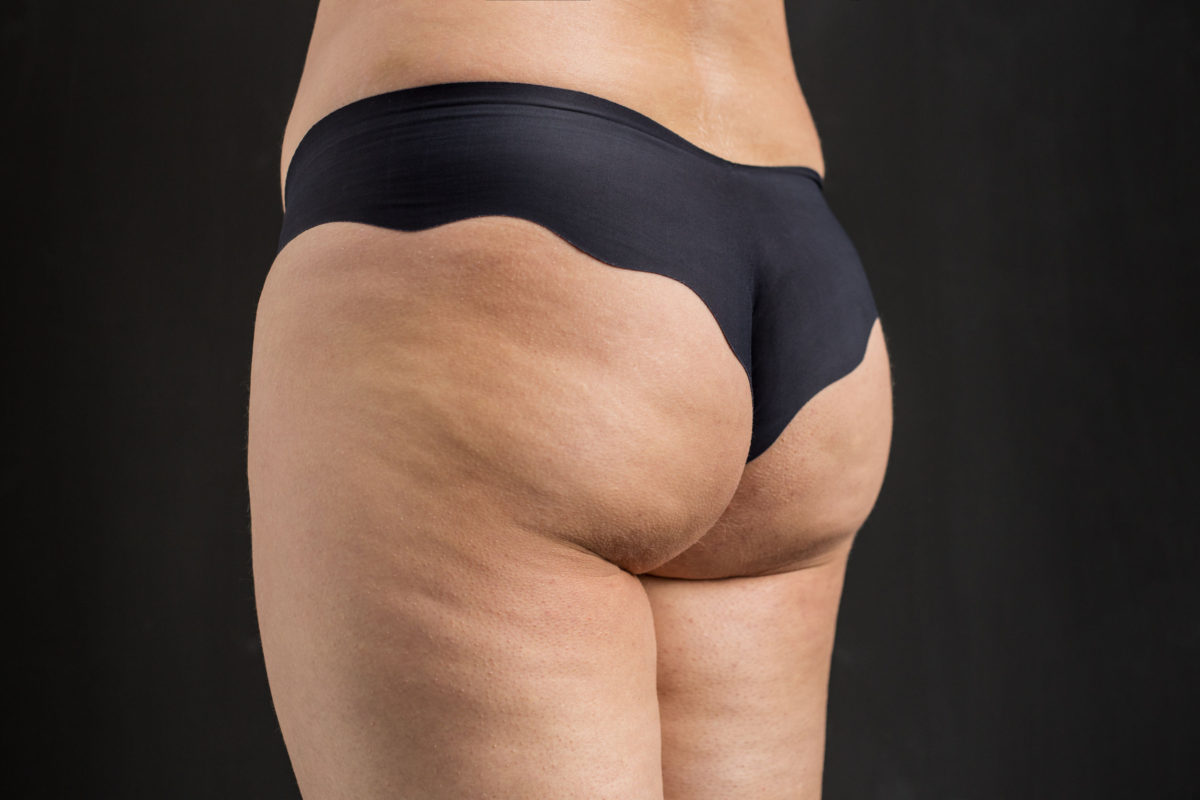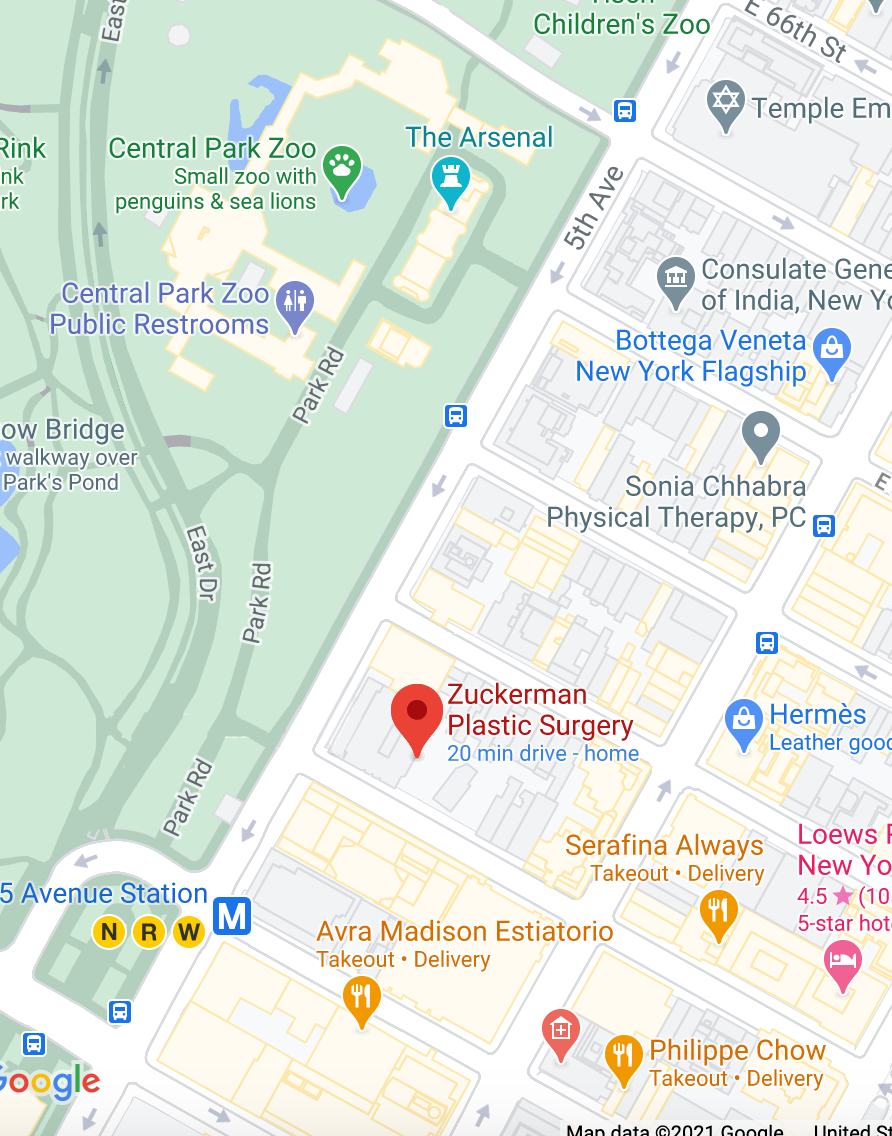While
Botox is the most popular cosmetic injectable treatment by a significant margin with over
seven million treatments reported by the American Society of Plastic Surgeons last year, it is a medical treatment that should be performed by a board-certified physician. Surprisingly, in the United States, regulations currently allow non-physicians to perform Botox injections. In theory, non-physician injectors should be supervised by physicians, but the extent of the supervision varies widely: patients may find themselves in an office where there is little to none. Botox is a safe and quick treatment in the right hands, but there are areas of the face – especially around the eyes – where it may be possible to cause complications. Dr. Zuckerman has been asked to treat partial eyelid paralysis and problematic facial expressions due to prior improper Botox injections, but most Botox complications must simply be “waited out” for three to four months when the product wears off.
2. Ideally, a Botox injector should be a plastic surgeon or facial plastic surgeon: a physician with surgical expertise.
Botox injections target specific muscles in the face, and plastic surgeons are the most familiar with the underlying facial anatomy. For example, Dr. Zuckerman uses slightly different injection sites to address
crow’s feet versus to perform a Botox
non-surgical brow lift around the eyes. These require careful treatment, because injection into the upper eyelid could impact an incorrect muscle and drop the eyelid. Plastic surgeons typically have hundreds or thousands of hours of experience with Botox and other fillers starting during their training. Visit
plasticsurgery.org to find a board-certified plastic surgeon.
3. Visit an injector who performs frequent treatments.
Practice does make perfect! (Or at least very good!) As mentioned above, most plastic surgeons have a multitude of hours of experience injecting Botox starting early on in their training. As a result, patients can be confident that a plastic surgeon performing Botox knows the injection techniques and locations to a high level of precision. Ask your Botox injector how many years of experience they have with the product.
4. How much does the injector dilute the product?
Those with less experience or less steady hands often dilute Botox more when reconstituting it, which involves adding saline to the raw product received from the company. The more dilute the product, the more potential exists for the effects to spread further than desired from injection sites. Especially around the eyes, this is undesirable for obvious reasons. Dr. Zuckerman dilutes Botox very little, as do many plastic surgeons.
5. Ask your injector if they are actually giving you Botox.
Several competitor products to Botox have come to market in recent years, and patients should ask their physician which neuromodulator they actually administer. Some physicians use the term “Botox” as a catch-all term that can mean any of
Botox,
Dysport or Xeomin. Patients may have different reactions to different injectable products, and the effects of treatment may vary in duration. Injectors may also be able to acquire Botox competitor products at less cost than actual Botox, which potentially creates an adverse incentive to use other products. In general, Dr. Zuckerman discusses with patients which actual neuromodulator he is going to administer and always starts with actual Botox unless the patient asks for a competing product.
6. How does your injector titrate the number of units for your personal Botox treatment? Do you come back for a follow-up?
Botox is a relatively simple injectable treatment, but its effects do vary across patients depending on age, facial muscle strength and other factors. Dr. Zuckerman feels that it is important for first-time Botox patients to visit his office for a follow-up approximately one week after treatment. At this subsequent appointment, the effects of treatment have set in, and Dr. Zuckerman can evaluate if further Botox injection is required. If you feel that your Botox injector is a “factory” churning out treatments with little time spent on each, Dr. Zuckerman recommends visiting a practice with a more personalized medical treatment approach.
7. Don’t price shop for cheap medical injectable treatments!
As mentioned in the first item, technically speaking one does not have to be a plastic surgeon, or even a board-certified physician, to perform Botox injections in the United States. While that may change in the future, searching for the lowest price option now may put a patient at risk of undergoing treatment from an unqualified provider. Botox is still medical treatment! Groupon is not the answer!











